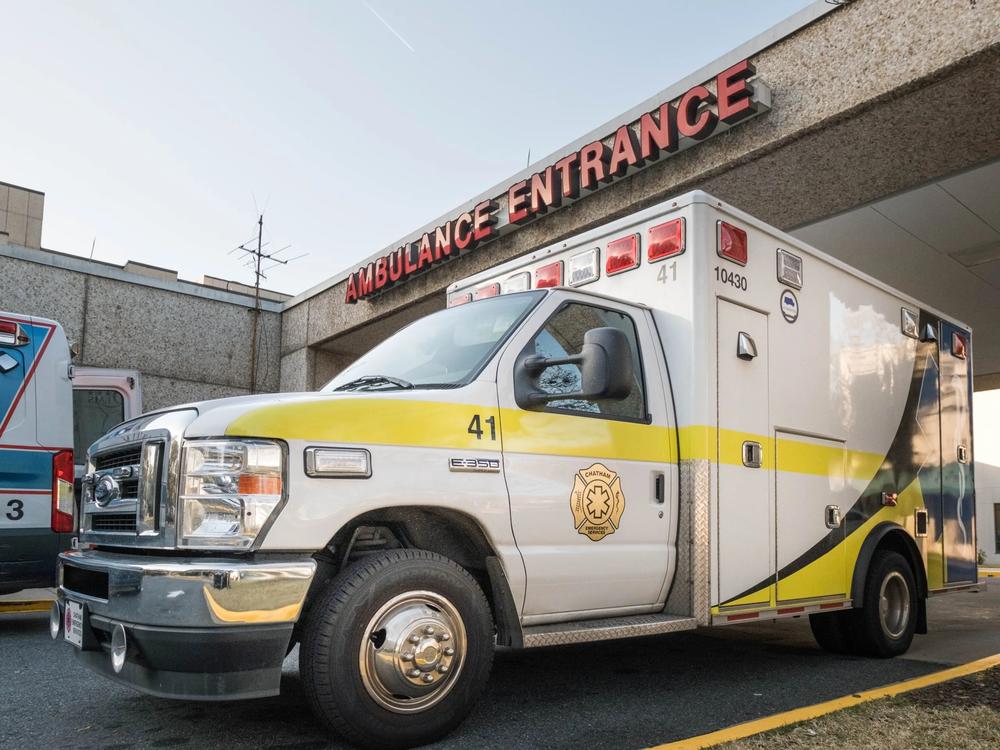
Caption
State lawmakers say they are working on a proposal to update 911 technology for the 21st century.
Credit: Justin Taylor / The Current

State lawmakers say they are working on a proposal to update 911 technology for the 21st century.
When Georgia’s 911 system was built, most people still used landlines. Today, calls for help made in the case of emergencies still rely on that decades-old system.
That’s why lawmakers in the state House are moving forward with a proposal to overhaul Georgia’s old infrastructure for updated technology.
“911 operators in the state work diligently; they take their job extremely seriously,” said House Rep. Will Wade during a public safety subcommittee meeting in February. “But those folks just need to have 21st-century tools to meet the expectations of 21st-century reality.
Wade is the primary sponsor of House Bill 423, which passed the Georgia House last Friday. The legislation paves a way for the implementation of Next Generation 911.
The system, often referred to as Next Gen, is internet-based rather than analog. The federal government has encouraged states adopt the new technology for years now — in fact, Georgia is the only state in the Southeast that hasn’t.
“We're promoting that we upgrade proactively to ensure that we get a statewide solution that meets all the needs of our No. 1 centers,” Aleisha Rucker-Wright of the Georgia Emergency Communications Authority explained to lawmakers in February.
If Georgia doesn’t, it would be facing a federal deadline to switch to Next Gen sometime in the next five years.
“It's definitely time,” said Doug Reineke, lobbyist with the Association County Commissioners of Georgia.
Much like how food delivery and courier services work, Next Gen technology pinpoints the location of emergency calls without any work from the caller and sends it to a 911 operator for dispatch. This can makes a call faster but also makes it easier for operators to determine what jurisdiction a call falls under, because most counties and big cities operate their own emergency services. In some cases a lack of standardization has led to delayed emergency response times.
During situations when call centers are swamped with incoming messages, Next Gen will also automatically reroute calls to other jurisdictions. That proved pivotal in North Carolina’s response to Hurricane Helene, which also devastated parts of Central and South Georgia.
Reineke said getting this legislation passed is the “No. 1 priority” of the over 200 members of ACCG, from across Georgia’s 159 counties.
“Especially with the Hurricane Helene this past year, [it] really kind of opened our eyes to some of the capabilities that our neighboring states have had with this technology,” Reineke said.
During Helene, there was a blackout of communication. With phone lines down, coordination between Georgia’s emergency management agencies and local first responders was extremely difficult.
While the state considers tackling infrastructure improvements across devastated areas, Reineke called it “imperative” that lawmakers also consider the risks that not replacing aging technology poses to thousands of people every day.
If HB 423 does pass, the next step will be securing funding.
Wade told lawmakers that the House and Senate are considering an appropriation of just over $5 million for the first year of Next Generation 911 implementation but said it could cost up to $8 million.
Funding from the state will be essential for counties to start the process of switching over, said Jim Thornton of the Georgia Municipal Association. After that first year, county governments may also have to make investments from their own budgets since it could require new infrastructure, like a fiber network.
“This might be an ongoing expense,” Thornton said.
So far, lawmakers have discussed counties will have a rolling timeline to enter into the Next Generation 911 system with some incentives.
There will probably be a learning curve “for 911 operators and for other public safety professionals,” Thornton said.
That's because under Next Gen, those first responders won’t just be managing calls: There will also be a capability to send texts, photos and video.
“I mean, they're constantly adapting to new technology to better serve the residents and be more responsive,” Thornton said. “That's how people communicate in 2025.”
HB 423 now heads to a yet-to-be-determined Senate subcommittee.